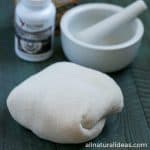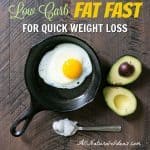You know about omega 3’s and 6’s. But what about omega 7 fatty acids? Omega 7 weight loss supplements may encourage fat-burning and other benefits.

In 2014, Dr. Oz touted the amazing benefits of omega 7 fatty acids on his show. But over two years later, relatively few people have even heard of omega 7, much less know its health benefits.
Let’s start with some basic similarities and differences between omega 7’s and omega 3’s.
Omega 3’s are essential polyunsaturated fatty acids, while omega 7’s are non-essential monounsaturated fats.
Natural sources of monounsaturated fats such as olive oil have been lauded for their heart-healthy properties, and are a staple in traditional Mediterranean diets.
Like omega 3’s, the healthiest and most abundant natural sources of omega 7’s are relatively few in number.
Omega 7’s are naturally-occurring in avocados, olive oil, cold-water oily fish such as salmon and anchovies.
(Like anchovies on your pizza? You’ll have to eat a ton of anchovies to get the benefits of omega 7’s, which might ruin the taste of your pizza.).
Is Omega 7 an important nutrient?
There are two other natural sources of omega 7’s as we’ll see in a bit that are the richest source of omega 7’s. But first, let’s talk about why omega 7 fatty acid is considered an important nutrient.
Omega 3’s are considered essential fatty acids. If you don’t get them from your diet or supplements, you may die prematurely.
Omega 7’s on the other hand are non-essential. They are not critical to obtain in the diet.
If you don’t get any omega 7’s you’re not at risk for dying decades before you’d want to.
Or are you at risk if you don’t get any omega 7’s in your diet?
If omega 7’s are non-essential, why have Dr. Oz and other experts hailed this nutrient as critical for optimal health?
When the term “omega 7 fatty acids” is used, really, what this is referring to is one omega 7 in particular: palmitoleic acid.
There are 7 fatty acids in the category of omega-7’s, but palmitoleic acid has been the most researched.
Palmitoleic acid is considered the one omega-7 that may contribute to positive outcomes. This is also the component that likely makes omega 7 weight loss supplements effective.
(NOTE: They’re not called ‘omega 7’s’ because there are 7 fatty acids. It’s because they have 7 carbon atoms at the end of their molecular chain).

Omega 7 health benefits
Here’s what scientific studies have revealed about the health benefits of omega 7’s:
- Reduces inflammation
- Lowers triglycerides
- Lowers LDL cholesterol
- Increases HDL cholesterol
- Reduces production of fat in the liver
- Regulates fat production within cells
- Encourages fat burning (the benefit for omega 7 weight loss supplements)
- Increases the body’s resilience to environmental toxins and stress
- Protects the cardiovascular system
- Improves blood sugar and reduces insulin resistance
Can you see why omega 7’s are considered a miracle nutrient by some people, including Dr. Oz? Omega 7’s can even be highly beneficial for weight loss.
Does that mean you should rush out to your local health food store and buy an omega 7 weight loss supplement if you’re trying to lose weight?
That depends. Don’t eat a lot of wild salmon? Does merely the thought of anchovies on your pizza stimulate your gag reflex?
How about anchovy oil (which is what some research studies used to test palmitoleic acid) … getting enough of that in your diet?
Whole food sources of omega 7
There are a few other sources of omega 7’s that are naturally occurring in the diet. Grass-fed dairy is one.
Grass-fed dairy as a source of omega 7 brings up an interesting nutritional paradox.
The particular omega 7 that’s abundant in grass-fed dairy is called vaccenic acid (‘vaca’ in Spanish means cow). Vaccenic acid is a type of trans fat.
We’re told that trans fats are the worst possible thing to consume.
But the type of trans fat found in this particular omega 7 fat can actually be beneficial for health. It’s all-natural, unlike processed, hydrogenated oils, which become trans fats.
And, some research has concluded vaccenic acid can reduce inflammation.
If you don’t want to take an omega 7 weight loss supplement, there are two other great options: macadamia nuts (or oil) and sea buckthorn berries. These two foods are the richest sources of omega 7’s.
Some articles pushing omega 7 supplements suggest that macadamia nuts as well as sea buckthorn are potentially dangerous sources of omega 7’s.
It’s because they contain yet another fatty acid called palmitic acid. Palmitic acid is naturally occurring in palm oil.
Some medical professionals believe palmitic acid consumption can lead to heart attacks and other morbidity causes. This is perhaps because palm oil is a saturated fat.
But saturated fat, as long as it’s naturally occurring and hasn’t gone rancid, can actually be great for your health. (For more on Smart Fats, read this.)

Omega 7 side effects
Laxative effect and urine color
If you’re not getting enough sea buckthorn in your diet, after reading about omega 7 side effects, you probably won’t be in a rush to buy some. Sea buckthorn may have a laxative effect.
If you purchase sea buckthorn extract, you may not experience this omega 7 side effect.
But if you were to eat a copious amount of sea buckthorn berries, you may want to be near a bathroom.
There’s a good reason why sea buckthorn is used in traditional Chinese medicine to detox the body.
There’s another possible side effect of omega 7’s. Your urine may look like you haven’t drank any water for weeks.
Taking sea buckthorn can make your urine appear dark yellow, or even reddish.
And if that happens, you’ll probably freak out, thinking something is majorly wrong with your bladder. But this is a natural side effect of consuming too many buckthorn berries.
Other effects noted
And there’s one more unpleasant potential side effect of omega 7’s from sea buckthorn. Are you familiar with “old people smell?”
There is some anecdotal evidence of this occurring, according to a website that specializes in fatty acid information. The odor can also have an olfactory reminiscence of old, musty books.
Consuming too much sea buckthorn may also deplete potassium, cause muscle weakness and irregular heartbeat.
If you don’t want to experience these omega 7 side effects, understand that you don’t need to consume a lot of omega 7 fatty acids to reap the benefits.
Has the above information has turned you off from buying sea buckthorn and buying an omega 7 supplement?
If so, then the next best thing to do would be eating some macadamia nuts or cooking with macadamia oil.
But there is one potential side effect of the omega 7’s found in macadamias: if you have a dog, keep it away from macadamia oil. The oil may cause temporary muscle weakness in canines.

Purified omega 7
Some omega 7 supplements lead you to believe they are superior because they are purified. Is purified omega 7 an excellent way to get some omega 7’s into your diet?
It depends on who you believe. Remember the above-mentioned fact that some health experts believe palmitic acid is a harmful saturated fat?
What the purification of omega 7 supplementation does is remove palmitic acid (the saturated fat) while retaining palmitoleic acid (monounsaturated).
Purveyors of purified omega 7 claim that supposedly harmful palmitic acid counteracts the benefits of Omega-7.
But if you’re not concerned about naturally-occurring saturated fats, then you probably don’t need to supplement with purified omega 7s.
Omega 7 Weight Loss Benefits on Dr. Oz
By now, you might be turned off from the idea of eating sea buckthorn berries or taking a buckthorn supplement because of the potential omega 7 side effects.
Dr. Oz certainly isn’t concerned about buckthorn potential side effects.
In fact, in 2014, on an episode of his show, he touted sea buckthorn as a miracle nutrient because of its beneficial effects on cholesterol, blood sugar, arterial motility, inflammation and fat storage.
Dr. Oz sang omega-7 praises because the fatty acids act more like a hormone when it comes to controlling hunger hormones leptin and ghrelin.
It helps stimulate release of the appetite-suppressing hormone, leptin, and decreases the “I’m hungry!” hormone called ghrelin. (For more on this dynamic physiological action of omega 7, read this study published in the journal, Appetite.
Getting hunger under control makes omega 7 fatty acid a potentially excellent nutrient for weight loss. It’s easy to see why Dr. Oz and other health experts have jumped on the omega 7 weight loss bandwagon.






